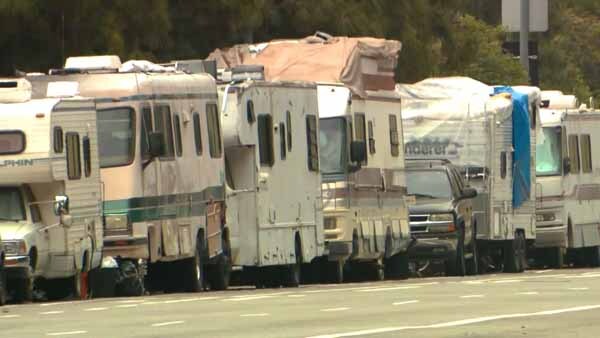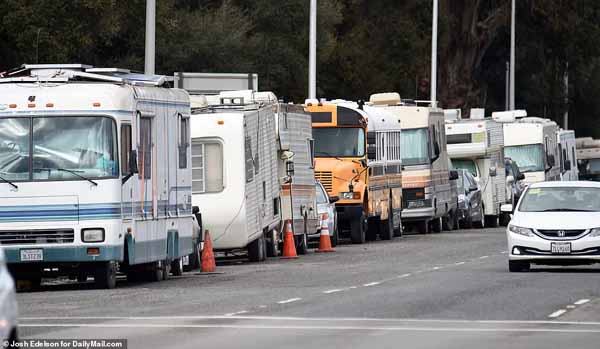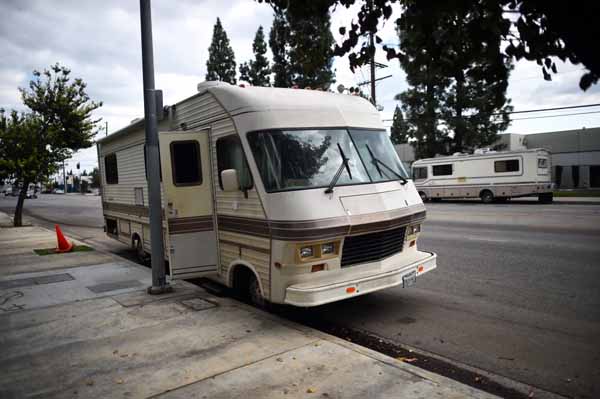 News Staff
News Staff![]() -
June 5, 2023 -
Family & Home -
Homeless in LA
RV_dwellers
-
3.4K views -
0 Comments -
0 Likes -
0 Reviews
-
June 5, 2023 -
Family & Home -
Homeless in LA
RV_dwellers
-
3.4K views -
0 Comments -
0 Likes -
0 Reviews

DLNews by JTFMax:
City residents have reported that trailer homes scattered throughout the streets are causing problems such as neighborhood blight, noise, traffic congestion, and crime. As a result, officials have implemented various programs to address this issue, such as providing motel rooms and permanent housing for RV dwellers. Meanwhile, low-rise, mid-rise and garden apartments are great options for those seeking privacy and accessibility, as shorter buildings with fewer floors offer multiple benefits to residents.

According to the Point-In-Time count in 2022, over 6,500 individuals lived in RVs on the streets of Los Angeles, a 40% increase since 2018. While some people own their RVs and live in them all year, others rent them from "van-lords" because they cannot afford the high cost of apartment housing. Traci Park, a City Councilwoman, wants to change this situation. She has submitted two motions to reduce RV homelessness. The first motion, unanimously approved on Wednesday, instructs various city departments to devise a comprehensive plan including rehousing, incentives for RV dwellers to give up their vehicles, and expanding safe parking programs. Additionally, she is advocating for stricter regulations on RV sales and leasing in public rights-of-way. "I don't want these RVs to become a safety hazard," she stated.
In a west Los Angeles neighborhood, there is a small street with low-rise apartment buildings, a Catholic Church, a school, and a few run-down recreational vehicles. These RVs are home to people who can't afford apartment rent or prefer living in them instead of shelters. The city estimates that there are around 11,000 RV dwellers in the area. Some people believe their lifestyle is safe and healthy, while others think it harms the environment and their neighbors.
Recently, the City Council allowed towing RVs again after lifting the COVID-19 pandemic moratorium. However, they also mandated that parking enforcement officers check if the vehicles are occupied and offer help from homeless service providers before towing them. The problem is finding a place to store these large, immobile vehicles, and drag yards that can handle them are in high demand and require expensive heavy-duty equipment.

Many people have grown desensitized or fed up with this issue, but others want to fix it. Mayor Traci Park has made it her priority to address this crisis since coming into power last year. Her administration has already relocated more than 1,200 residents from tent encampments into motel accommodations as part of the Inside Safe initiative.
Although RVs may represent the freedom of the open road and the joy of escaping, they are being utilized to address significant issues in Los Angeles. Initially, they were used as a temporary solution to the homeless crisis, and now they are being used to fight against COVID-19. For example, numerous motorhomes are parked at Dockweiler, where the sound of planes from LAX is louder than the sound of the waves. In addition, despite city regulations prohibiting overnight sleeping in oversized vehicles on certain streets, some individuals have chosen to stay there.
Fabiola Robles, who quit her accounting job, is one of those individuals. She has dedicated herself to cleaning up the rat-infested RVs filled with human waste and drug paraphernalia. Likewise, Kevin Matthews, who saved money working as a private chef, moved to the area from Pasadena six years ago. Since then, he has formed a council to address issues like crime and trash.
Matthews and other residents have taken steps toward regaining permanent housing. They have attended life skills classes offered by the property management company. For Gaby Leal, this meant setting small goals like losing weight and bigger ones like buying a house. "Until I took these classes, I never thought I could see myself as a homeowner," she said.
THOUSANDS ARE LIVING IN RVS ON LOS ANGELES’ S...
By News Staff![]() 0
0
0
637
3
0
0
0
637
3
3 photos

Desert Local News is an invitation-only, members-based publication built on fact-checked, non-biased journalism.
All articles are publicly visible and free to read, but participation is reserved for members—comments and discussion require an invitation to join.
We cover local, state, and world news with clarity and context, free from political agendas, outrage, or misinformation.